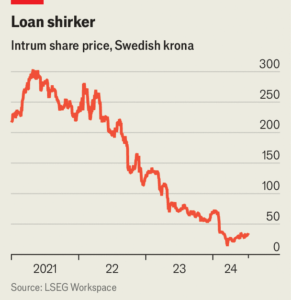
Your browser does not support the <audio> element.
“HE INSPIRED NEITHER love nor fear, nor even respect…He originated nothing, he could keep the routine going—that’s all.” As a description of your typical middle manager, it is hard to surpass Marlow’s view of the boss at a river port in Joseph Conrad’s “Heart of Darkness”. The novella is a critique of colonialism in Africa, and an exploration of power and morality. It is also a guide to dealing with corporate bureaucracy. Marlow’s steamboat is in tatters and the manager is useless—Marlow must solve the problem himself. It sounds like an ordinary day at a Fortune 500 company.
Bookshops are stuffed with management tomes on how to be a good leader, inspire others, survive office politics, navigate cultural differences and win negotiations. But executives would do well to ignore the corporate self-help shelves and head instead for the classics section. Great works of literature, with their piercing examination of the human condition, have much to teach the aspiring chief executive about business—values of honesty, empathy and commercial acumen, as well as insights into vanity, pettiness, greed and ruthless ambition, all of which punctuate the journey from cubicle to corner office.
Ditching corporate prose for fabulous stories is itself the subject of at least one business book. In “Questions of Character: Illuminating the Heart of Leadership Through Literature”, Joseph Badaracco, a professor of business ethics at Harvard Business School, considers eight works that provide lessons on what good leadership is—and isn’t. If Mr Badaracco had to recommend one book executives should read this summer, it would be “Things Fall Apart” by Chinua Achebe. “Serious literature tends to be tragic literature,” he says. “The struggles of the main character, Okonkwo, reveal the profound challenges leaders confront when they face evolving social norms, novel economic challenges, shifting power dynamics and the challenge of communicating across cultural divides.” Your guest Bartleby has other literary recommendations, on a range of management topics.
Great leaders need good mentors. Is there any better than Virgil in Dante’s “Inferno”? He guides the main character through Hell and Purgatory, pointing out dangers, giving advice, rebuking on occasion and finally withdrawing when his charge is ready to ascend to the innermost circles of the immortal world. Just as mentors motivate their wards, so must managers. Few books are better on motivation than Mark Twain’s “Tom Sawyer”. Forced to paint a fence white rather than play with his friends, the titular ragamuffin comes up with a way to make it seem so appealing that the local kids want to do it—and end up paying Tom for the privilege. Business-school professors call it “psychic rewards”.
For navigating HR or the finance department, pick up Joseph Heller’s “Catch-22” or Franz Kafka’s “The Trial” (the characters’ bureaucratic travails will make yours seem trivial). For holding meetings, crack open William Golding’s “Lord of the Flies” (arguments descend into savagery). As for IT support, enjoy Samuel Beckett’s “Waiting for Godot” (pure nothingness). For lessons on digital transformation, dump Clay Christensen’s “The Innovator’s Dilemma” and read Mary Shelley’s “Frankenstein”.
The frenzy of business, when it is not a comedy, is a tragedy. That makes Shakespeare a font of wisdom—if mainly on what to avoid. Richard III and Macbeth are terrible leaders: the former hubristic, the latter overly ambitious. King Lear stresses the importance of succession planning. Othello reminds executives to choose their personal assistants carefully. (Though Lady Macbeth is a case study in how to work the system as a non-executive director and Iago, Othello’s duplicitous aide, is instructive on how to deceive and get rid of the boss.)
The worst CEO in literature, believes John McCallum, a retired professor at the University of Manitoba’s Asper School of Business who used novels in his teaching, has to be Captain Ahab in Herman Melville’s “Moby-Dick”. “Selfish, reckless, arrogant, ignorant—he hits every marker of the bad boss,” Mr McCallum says. The best has to be Fezziwig from Charles Dickens’s “A Christmas Carol”: caring and generous, but also a good businessman. Beware, though, for generosity has its limits. In Melville’s short story “Bartleby, the Scrivener”, this column’s namesake, a surly employee, preferred not to work. The lenient boss kept him around. Productivity fell. The horror. ■
To stay on top of the biggest stories in business and technology, sign up to the Bottom Line, our weekly subscriber-only newsletter.















